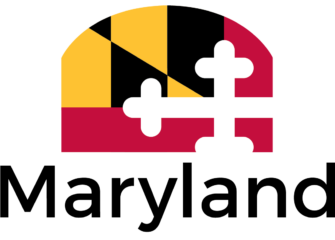
1. What is hindering economic growth in the Salisbury area?
Federal regulations and Maryland’s high taxes have, unfortunately, forced many businesses to lay off workers, limit the hiring of new workers, and, in some events, leave the state for Delaware and Virginia, where there are lower taxes and a more business-friendly regulatory environment.
2. Why do you think the Lower Shore has a higher unemployment rate than other areas of Maryland?
The overall statewide unemployment rate in Maryland is lower than it is on the Lower Shore because there are a large number of federal employees and contractors in the Baltimore-Washington corridor who haven’t been as affected by the recession. Also, the private-sector economy, especially the one on the Lower Shore, is struggling due to Maryland’s high taxes and burdensome state and federal regulations. Because of the proximity of Delaware and Virginia, new business investments and their associated jobs are often bypassing Maryland to one of those states.
3. What are you doing at the federal level to try to get our economy moving again?
The house has passed numerous bills that would empower small business owners, fix the tax code to help job creators, increase competitiveness for U.S. manufacturers, and encourage growth and entrepreneurship. Some of these bills include H.R. 872: Reducing Regulatory Burdens Act, H.R. 2587: Protecting Jobs from Government Interference Act, H.R. 4078: Red Tape Reduction and Small Business Job Creation Act, H.R. 9: Small Business Tax Cut Act, and H.R. 6169: Pathway to Job Creation through a Simpler, Fairer Tax Code Act. Unfortunately, 40 of the jobs bills that the House has passed are currently stuck in the Senate, including all the ones I just mentioned.
4. How do you think Wallops is impacting the Lower Shore?
Since Wallops Island and the Mid-Atlantic Regional Spaceport (MARS), one of only four locations in the U.S. authorized to launch vehicles into orbit, is so close to Maryland’s border, its impact on the Lower Shore can be very significant. Maryland residents have worked at Wallops since the 1940s, and some estimates now show Marylanders making up nearly half of the total workforce (and virtually all of those Maryland workers live on the Lower Shore). The expansion and enhanced operations at Wallops will serve as a magnet for employment of our outstanding Science, Technology, Mathematics and Engineering (STEM) students, since Wallops provides cutting-edge, good-paying jobs that represent the future of American space and scientific exploration.
5. What are you hearing from businesses with regard to how the health reform law is impacting them?
Almost uniformly, I hear about how the uncertainty surrounding the new law is negatively impacting businesses everywhere. I have spoken with many business owners who are facing higher health insurance costs and therefore hiring fewer workers or cutting back worker hours so that they can afford the cost of ACA-compliant policies. In late February, the non-partisan Center for Medicare & Medicaid Services released a report stating that two-thirds of small businesses will see an increase in health care premiums under the ACA. That’s some 11 million Americans who will be left with higher premiums and less take-home pay because of the President’s health care law. Its impact on business owners has been—and will continue to be—devastating.




